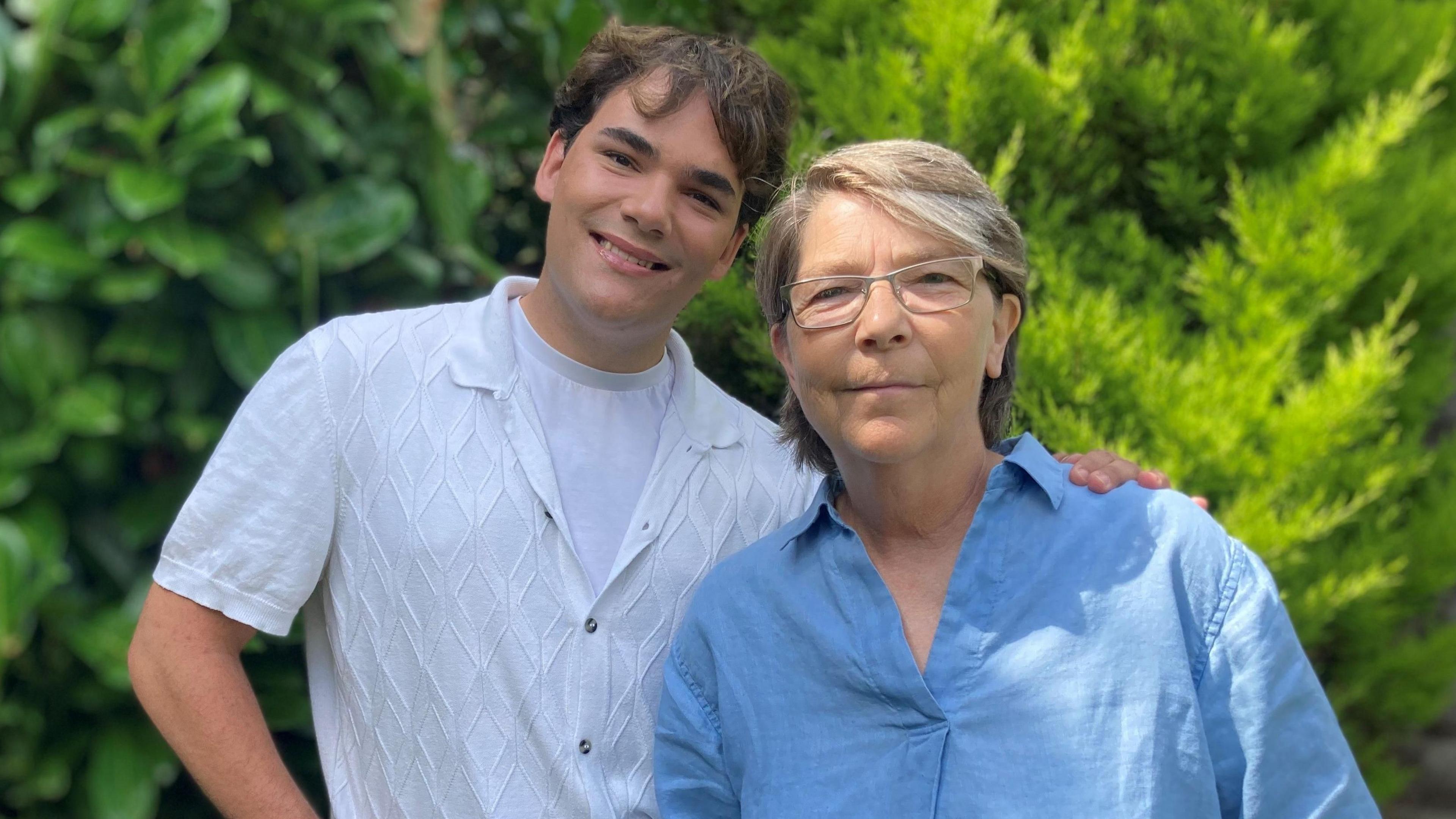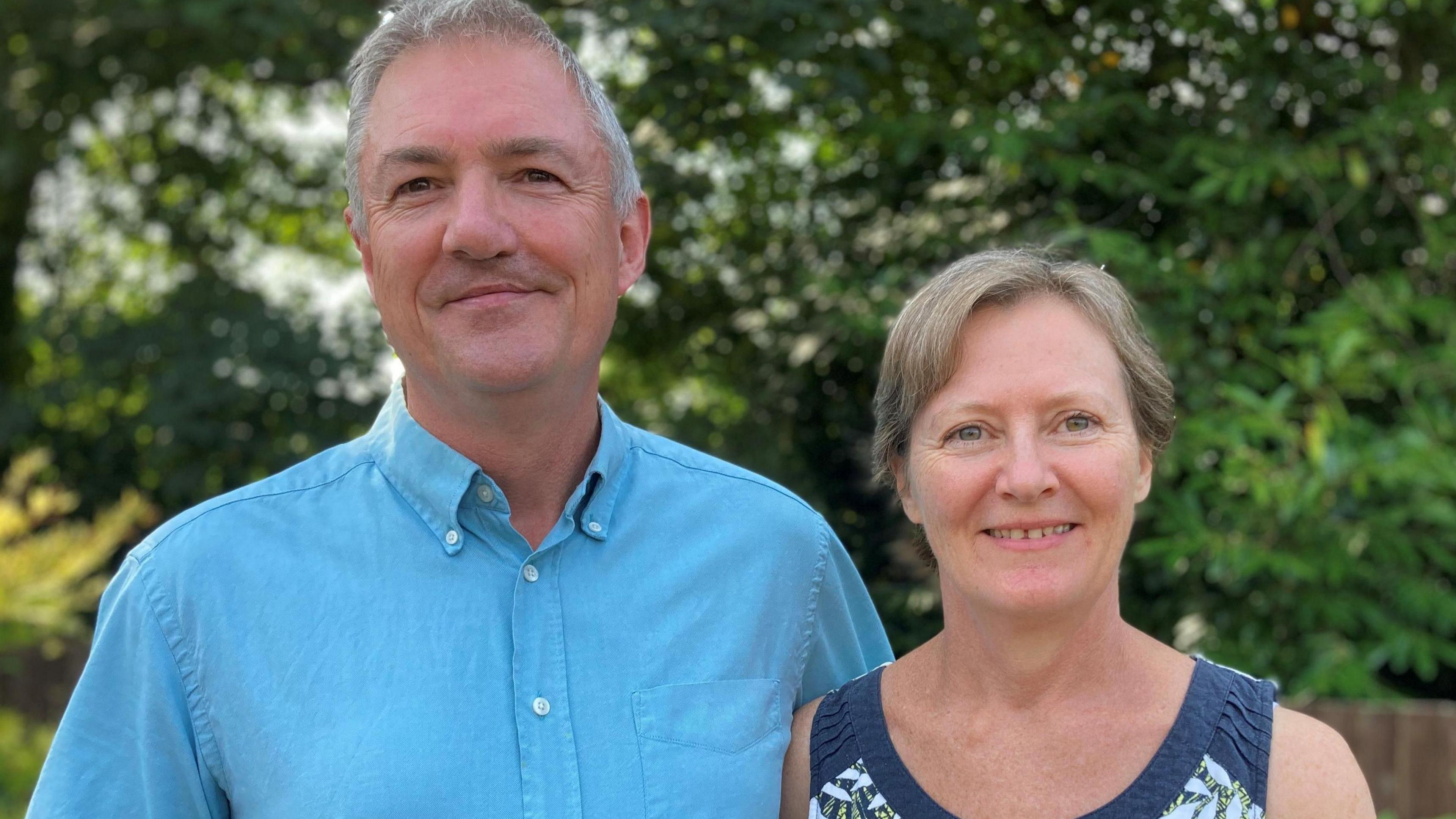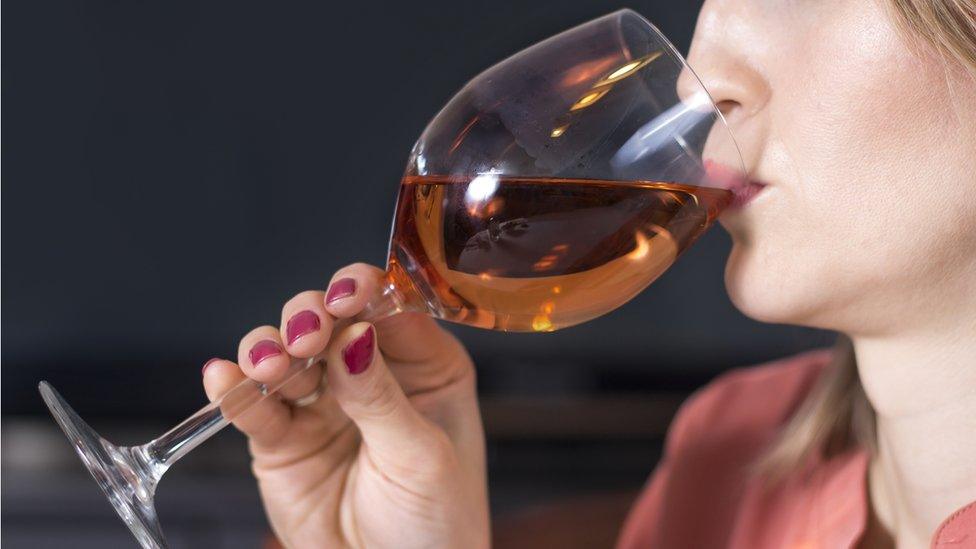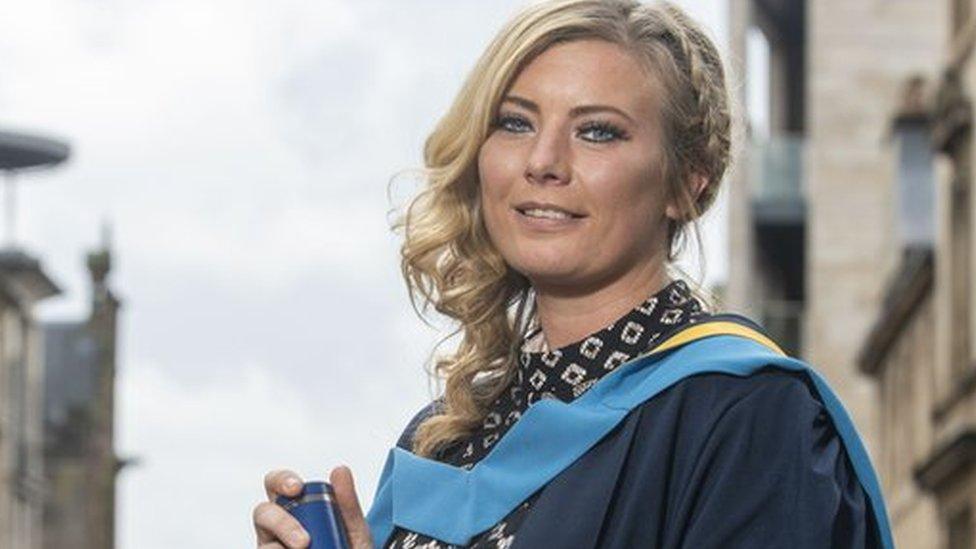'Nobody asked me about alcohol when I was pregnant'

Rossi Griffin, pictured with his mum Jan, recently appeared on the BBC'S Glow Up programme
- Published
There are calls for more awareness education and support into those with foetal alcohol spectrum disorder (FASD).
FASD is a is a group of conditions that can develop when someone has been exposed to alcohol in the womb.
Parents of those affected have spoken of difficulties they experienced bringing up children who "didn't fit in".
Expectant mothers are advised not to drink at all during their pregnancy.
Drinking during pregnancy means the toxins pass to the foetus which can cause physical, mental or behavioural damage to the baby.
FASD can cause hearing and balance troubles, learning issues, problems developing social skills and impulse control.
Jan Griffin, from Esher in Surrey, discovered she was pregnant at the age of 40, and said she was warned about smoking, eating eggs and cheese when pregnant.
"Nothing was mentioned about drinking - I wish it had been," she said.
She described her drinking habits at the time as "average".
"I'd have friends over at the weekend and drink a bottle of wine with them, or go to the pub after work and have a couple of pints," she continued.
Her son Rossi was diagnosed with FASD at the age of 12.
She recalled, while at nursery, her son "just wasn't getting it" when told not to do something.
"No matter how many times they told him, he would just continue doing it," she said.
Now 22, Mr Griffin said he felt an "outsider" at school.
"I'd go to the nursery and I'd drink the milk out of their fridge," he said.
"There wasn't even a thought in my mind that I'd been told not to do that."
He recalled: "You can't verbalise what you're thinking because there's so much in your head.
"The things that do come out aren't always the correct things to say."
He has gone on to have a career as a make-up artist, even appearing in BBC Three's Glow Up: Britain's Next Make-Up Star - a national competition where aspiring make-up artists prove their potential to industry professionals.
He described how having a conversation can feel "like your ears are underwater".
"You can see the face moving but you can't understand what they're saying," he said.
"When you have FASD, it's a life of pretence. The world is not built for neurodiversity and you are acting, in a way, for neurotypical people to understand you."

Stephen and Helen's adopted daughters have FASD
About a quarter of adopted children are diagnosed with, or suspected to have, FASD, according to Adoption UK.
Stephen and Helen Hull, from Romsey in Hampshire, adopted two sisters as babies.
Within a few years they both began displaying concerning behaviour including "child-on-parent" violence.
Mr Hull said his daughters were "really struggling with boundaries".
"I think the young people also start to realise they're different," he said.
"They struggle to form and maintain friendships.
"For FASD there is only one clinic and quite a long wait.
"There needs to be progress in developing expertise regionally.
"FASD is preventable so there needs to my much more awareness of [the risks of] drinking in pregnancy."
His wife described how, as a parent, she "felt very alone".
"On the playground I would be aware of other parents just chatting about me," she said.
"Or coming right up to me and, not picking a fight, but mentioning what my child had done to theirs that day.
"They didn't get invited to birthday parties very often, barely at all, or when they did it was feeling sorry for them and they didn't really fit in.
"The sad thing was seeing them realise they were very different."
Dr Raja Mukherjee is a consultant psychiatrist at the National Clinic for FASD, the UK's only specialist NHS clinic for assessing people with the disorder, provided by Surrey and Borders Partnership NHS Foundation Trust.
"Despite the fact this is the single biggest cause of intellectual impairments, there is very little broad recognition about it," he said.
"You're looking at probably 3-4% of the population who probably have FASD, it's not a rare disorder, it's just under-recognised."
The risk of FASD is higher the more the mother drinks.
Currently, NHS advice is that there is no proven safe level of alcohol in pregnancy.
Not drinking at all is the safest approach.
Get in touch
Do you have a story BBC Hampshire & Isle of Wight should cover?
You can follow BBC Hampshire & Isle of Wight on Facebook, external, X (Twitter), external, or Instagram, external.
Related topics
Related internet links
Related Links
- Published20 December 2022

- Published30 November 2022
